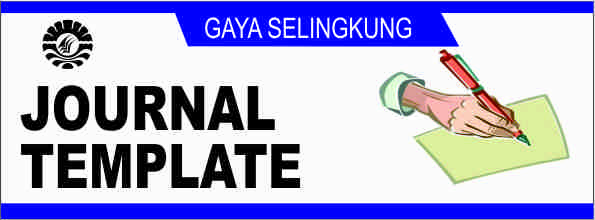Patterns of Economic Allocation and Decision Making of Mountain Farming Women in Rural Development
(1) Universitas Negeri Makassar
(*) Corresponding Author
DOI: https://doi.org/10.26858/jo.v9i2.56577
Abstract
Keywords
Full Text:
PDFReferences
Adrianah, A., Asniwati, A., & Nginang, Y. (2017). Lagging in the Interior Village (Study of Government Participation in Community Development in Pariangan Village, Polewali Mandar Regency). Jurnal Office, 7(1), 47–54.
Ahmad, M. R. S., & Syukur, M. (2008). Perempuan dan Gender dalam Politik Indonesia. PREDESTINASI, 1(2), 100–107.
Arikunto, S. (2013). Prosedur Penelitian : Suatu Pendekatan Praktik (Edisi Revisi). Jakarta: Rineka Cipta. https://doi.org/10.1017/CBO9781107415324.004
Faizal, L. (2016). Perempuan Dalam Politik (Kepemimpinan Perempuan Perspektif Al-Qur’an). Jurnal Tapis, 12, 94–110.
Fajar, A. S. (2019). Perspektif Ibnu Khaldun tentang Perubahan Sosial (Ibn Khaldun’s Perspective About Social Change). Jurnal Social Dan Budaya, Syar’i, 6(1).
Hariati, H., & Saleh, S. (2016). Peran Kepala Desa sebagai Administrator Pembangunan di Desa Moncongloe Kecamatan Moncongloe Kabupaten Maros. Jurnal Office, 2(2), 143–148.
Ismail, A. (1998). Partisipasi Perempuan Dalam Pembangunan. PPs Universitas Padjadjaran.
Ismail, A. (2022). Kontribusi Perempuan Tani Pegunungan dalam Memenuhi Kebutuhan Keluarga. Jurnal Sosialisasi Jurnal Hasil Pemikiran, Penelitian, Dan Pengembanga Keilmuan Sosiologi Pendidikan, 9(3).
Ismail, A., & Umar, F. (2018). Perempuan dan Politik Desa.
Ismail, A., & Umar, F. (2019). Perempuan dan Pembangunan Politik.
Musa, M. M. (2021). Peran Agama Dalam Perubahan Sosial Masyarakat. Jurnal Nuansa, 14(2).
Niswaty, R., Dewi, M., Darwis, M., Arhas, S. H., & Saleh, S. (2020). Community Participation in Development in Baringeng Village, Lilirilau District, Soppeng Regency. Jurnal Ilmiah Ilmu Administrasi Publik, 10(2), 389–397.
Risal, R., Agustang, A., & Syukur, M. (2021). Peranan Perempuan Tani dalam Meningkatkan Ekonomi Keluarga di Kelurahan Bonto Langkasa Kecamatan Bissappu Kabupaten Bantaeng. Phinisi Integration Review, 4(2), 282–291.
Sajogyo, P. (1981). Peranan Wanita dalam Keluarga, Rumah Tangga dan Masyarakat yang Lebih Luas di Pedesaan Jawa. Universitas Indonesia.
Saleh, S. (2016). Peran Kepala Desa Sebagai Administrator Pembangunan di Desa Moncongloe Kecamatan Moncongloe Kabupaten Maros. Jurnal Office, 2(2), 143–148.
Sugiyono. (2019). Meotode penelitian kuantitatif,kualitatif, da R&DP. Alfabeta, bandung.
Tindangan, M. (2020). Peran Perempuan Dalam Meningkatkan Ekonomi Keluarga (Studi Kasus : Perempuan Pekerja Sawah Di Desa Lemoh Barat Kecamatan Tombariri Timur Kabupaten Minahasa). Jurnal Berkala Ilmiah Efisiens, 20(3
Article Metrics
Abstract view : 40 times | PDF view : 6 timesRefbacks
- There are currently no refbacks.
Copyright (c) 2023 Ashari Ismail

This work is licensed under a Creative Commons Attribution 4.0 International License.






























 under a
under a